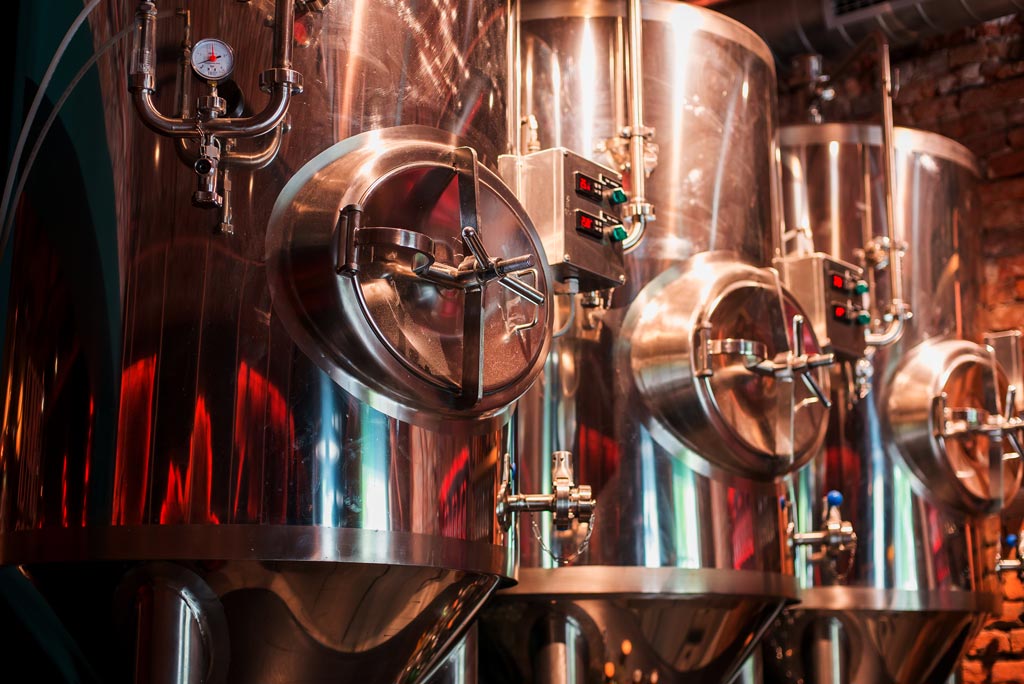Preserving a craft: Downlands Brewery and the critical importance of pH and temperature consistency

From vegan hazy pale ales to all manner of dessert-inspired stouts, beer as a category of drinks is more diverse and interesting than it has ever been.
The UK has emerged as a hub of creativity in this market, with brewers all over the country latching onto the craft craze that the likes of BrewDog have so successfully marketed.
In 2022, the market for craft beer in the UK is set to reach £1.4 billion – although this is down on pre-pandemic levels, it represents a 9.3% rise compared to 2021, a sign the market is heading back in the right direction. Indeed, since 2012, the industry has nearly doubled in value.
Downlands Brewery entered the fray in 2011 at a time when the market was beginning to take off.
Today, the company produces a range of cask and keg-conditioned beer, including a classic English bitter, mosaic-hopped pales, a session IPA, and even a caramel waffle stout.
These creations are produced in the picturesque village of Small Dole in West Sussex. The brewery’s owners display an infectious passion for their craft. This is also evident from the moment one enters the brewery – there is an emotional connection to the place.
Temperature sensitive
There is also a lot of scientific knowledge that pours into the brewing process, a craft that requires serious time, investment and equipment to execute successfully and consistently.
“Our day starts here, in the mash tun where the water and malted barley is mixed together,” Widdi said. “The temperature and the pH that we hit in this vessel are critical to our daily processes and above all else, our success. If it goes wrong, then it would impact how the beer presents in the glass.”
Appearance is critical in the beer category. While some beers are deliberately designed to appear hazy and cloudy, clarity is essential for others such as the classic bitter – if it doesn’t appear clear, it is a sign that something somewhere may have gone wrong.
Downlands Brewery carries out pH calibration checks on a daily basis due to the proneness of pH meters to drift.
“Temperature is critical when it comes to determining both the consistency and density of the drinks served,” Widdi added. “If the mash temperature reaches between 63 and 65 degrees then you can expect a thinner beer, but as it increases between 65 and 69 the beer will have more body at the end of the process.”
Likewise, the pH in the mash tun is crucial to the success of the process. It needs to stay between 5.0 and 5.7 for the enzymes to function properly and deliver the right level of sugar conversion – once again, this will impact the presentation of the beer in the glass.

Quality pays
Here, ETI’s digitised pH and temperature meter kit is the perfect partner, enabling Widdi and his team to measure both pH and temperatures with ease and at speed when compared to manual processes.
It is important that the probe reaches all the way down to the bottom of the grain bed. This enables Widdi to measure the temperature throughout the mash and generate as accurate a picture as possible.
Downlands Brewery has been making use of ETI’s probes throughout its decade of brewing.
During this time, however, Widdi admits that he has made the mistake of adding a handful of cheap alternatives into his Amazon basket as a quick and easy fix.
“Having tried these cheaper pH meters and other pH meters, I can admit it was a big mistake!” he said.
“ETI’s products have two-point calibration, meaning it’s quick and easy provided that the probe is clean and functioning. Drop it in the 7, drop it in the 4, job’s a good’un. Having this equipment is a huge bonus – the cheaper alternatives were a waste of money.”
The road to recovery
Widdi and Downlands Brewery bore the brunt of the pandemic and lockdowns, the industry suffering hugely with venue closures which in turn reduces demand for casks and kegs of beer.
Even today, behaviour hasn’t been restored to pre-pandemic norms in terms of getting out and about into pubs, and more consumers are buying miniature brew kits to produce their own beer at home.
However, despite the immensely challenging context, Downlands Brewery is holding its own. Having started out as a 100% cask brewery, it now has a diverse portfolio that sees keg beers generate around 30% of its income during what Widdi terms ‘normal times’, which he hopes to be on the horizon.
He remains determined to support the pub sector. This, alongside some practical reasons relating to space, is why the company has not moved into direct-to-consumer sales via bottles and cans.
And those pubs (predominantly across Sussex) which sell Downloads Brewery beer can rest assured it arrives in pristine condition, much of this being owed to a meticulous brewing process that does not leave pH and temperature consistency to chance.
You might also like:
Coffee Temperatures: Beans to Brew with Kendricks
Beekeeping & Hive Temperatures with SW Honey Farms
Tyre Temperatures: The Key to Motorsport Success